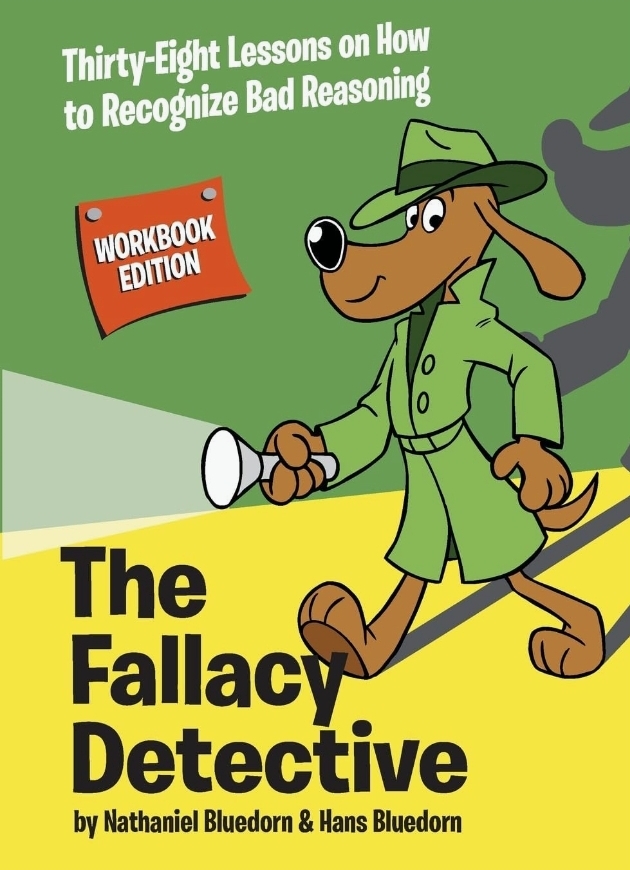Introduction: Why Fallacies Matter
We live in an age of information overload, where every day we’re bombarded by arguments—online, in the news, in politics, even in our families. But not every argument is sound.
Some are misleading, manipulative, or just plain illogical. The ability to recognize bad reasoning—to spot a fallacy—is crucial for anyone who wants to stay sane, think clearly, and protect themselves (and their community) from being duped.
That’s where The Fallacy Detective by Nathaniel and Hans Bluedorn comes in—a practical, accessible guide to the most common logical fallacies, written for families, students, and anyone who wants to get sharper at spotting nonsense.
What is The Fallacy Detective?
First published in 2002, The Fallacy Detective is now a classic of informal logic and critical thinking, popular in homeschooling and educational circles for its clarity, wit, and hands-on approach.
The book presents thirty-eight lessons, each focusing on a specific type of logical fallacy or poor reasoning, and is filled with real-life examples, exercises, cartoons, and practical tips.
What’s a Fallacy?
A fallacy is a deceptive, misleading, or mistaken idea—especially one that looks persuasive at first glance. Logical fallacies are errors in reasoning that weaken arguments. They’re used (intentionally or not) to manipulate, distract, or confuse.
Types of Fallacies Covered
The Fallacy Detective is organized into easy-to-follow lessons, each highlighting a different bad habit of thought. Here are a few examples:
- Red Herring: Introducing irrelevant information to distract from the main issue.
- Ad Hominem: Attacking the person instead of the argument.
- Straw Man: Misrepresenting someone’s argument to make it easier to attack.
- Appeal to the People (Bandwagon): Claiming something is true because “everyone believes it.”
- Circular Reasoning: Using your conclusion as your premise.
- Loaded Question: Asking a question that contains an assumption.
Each lesson explains the fallacy, gives recognizable examples, and provides exercises so readers can practice spotting these errors themselves.
Why The Fallacy Detective Stands Out
- Accessible Language:
The Bluedorns write for families and young adults, using humor, cartoons, and clear explanations—no philosophy degree required! - Practical Exercises:
Each chapter invites readers to analyze everyday conversations, ads, or political debates for faulty reasoning. - Defensive Thinking:
In an era of fake news, clickbait, and social media “hot takes,” this book helps readers defend themselves from manipulation and groupthink.
Real-World Application
- Civic Engagement:
Whether you’re watching the news, voting, or scrolling through social media, understanding fallacies helps you cut through spin and make better decisions. - Personal Growth:
Recognizing your own biases and reasoning mistakes is essential for learning, growing, and honest conversation. - Raising Critical Thinkers:
The Fallacy Detective is ideal for parents and educators who want to raise kids who can think for themselves.
Conclusion: Become a Fallacy Detective
Logic and clear thinking are survival skills in the 21st century.
By working through The Fallacy Detective, you’ll be better equipped to recognize when someone is trying to manipulate you, and—just as importantly—when you might be fooling yourself.
As Nathaniel and Hans Bluedorn show, anyone can learn to spot bad reasoning. All it takes is practice, attention, and a willingness to ask:
“Does that really make sense?”







